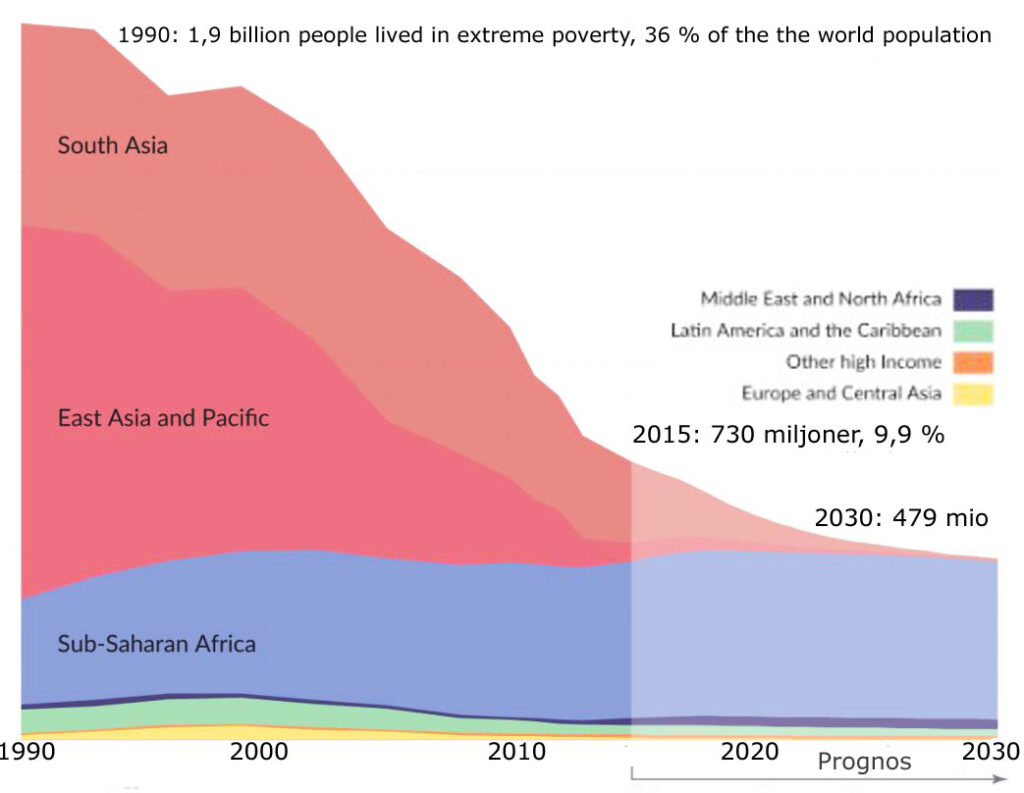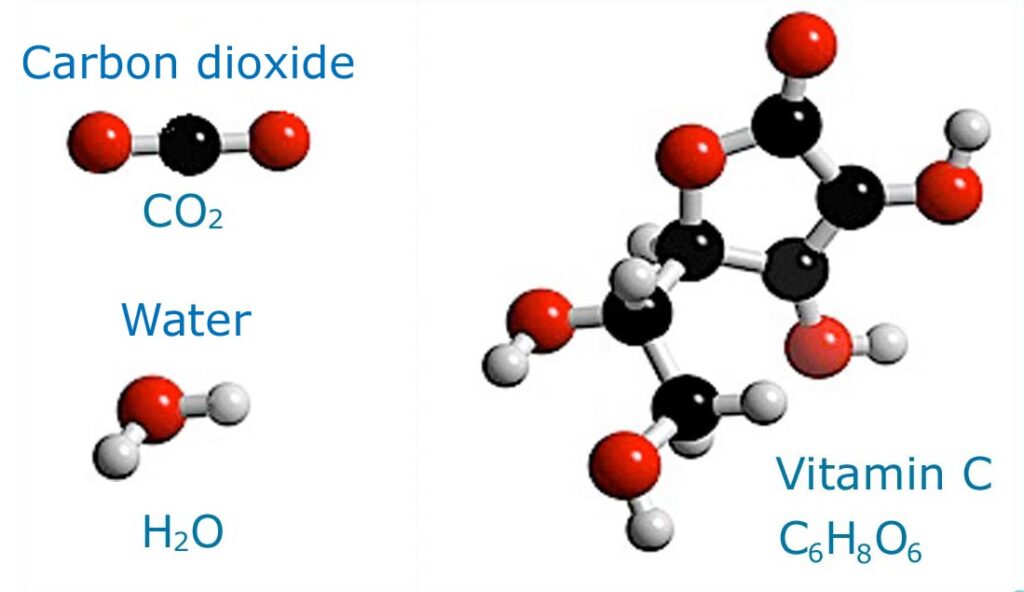Figure 1. The Pacific Ocean stretches around one third of Earth’s circumference
It is a well-known fact that the capacity of water to dissolve gases is reduced with rising temperatures. Thus the steadily increased content of carbon dioxide, CO₂, in the air over the last century is mainly caused by slowly rising temperatures of the oceans.
In all, oceans cover 71 % of Earth’s surface. Over this enormous contact area between oceans and atmosphere CO₂ is released from the warm waters around the equator and is absorbed by the cold waters near the poles.
We can stop the “climate crisis” with some simple facts, which are both easy to understand and easily accessible. They are so crucial that they should stop all further debate about the effects of CO₂.
1. All our emissions go down into the oceans!
The law of nature, “Henry’s law”, says that at each temperature there is a certain ratio between the content of a gas above a liquid surface and in the liquid. This means that the disturbance caused by “human” emissions that raise the level of CO₂ in the air is compen-sated by the oceans which absorb a corresponding amount.
The capacity of the oceans to hold CO₂ is four thousand times greater than one year of emissions, so in them no effect can be measured.
Conversely: If we try to store away CO₂ in old oil wells as a “final repository” with CCS technology, Carbon Capture and Storage, the oceans will compensate for it by gassing out the corresponding amount.
Of course, there is a certain delay, but with the time horizon that applies to climate, 30 – 60 years, the process has time to be completed.
Conclusion: “Man” cannot affect the level of carbon dioxide in the air. Thus, the hypothesis of the effect of emissions on climate fails.
The fact that the content of CO₂ in the air has risen is thus due to the oceans becoming warmer, not to our emissions! That warming can be attributed to the Sun’s activity, but that debate does not affect the conclusion.
2. Emissions continue to increase 1 – 2 % per year
Under the Paris Agreement, China, India and developing countries can prioritize poverty reduction before combating emissions, as everyone knows that poverty is the worst environ-mental threat. Hence they build 2 – 5 large coal-powered plants EVERY WEEK, as these provide the most electricity for an investment. They intend to continue at that pace at least until 2030.

Figure 2. A quarter of the world population has been lifted out of extreme poverty
Those countries have seen hundreds of millions of their citizens lifted out of hunger and misery thanks to dramatically larger harvests, to which CO₂ has contributed. According to the World Bank, A QUARTER OF HUMANITY has left “extreme poverty” in 25 years. In addition, for 30 years these countries have seen that all major alarms from the IPCC have proved false. CO₂ has not affected their cyclones, floods and other natural disasters, which they are used to.
They have seen the benefits of more CO₂. They show that they do not believe in the IPCC.
These countries show that they are convinced there is no “climate crisis”.
3. CO₂: the origin of life
The marvel of photosynthesis allows algae and plants to use the energy of sunshine first to decompose carbon dioxide so oxygen is released and then to fit together the atoms of carbon with the simple molecules of water into very large and complex molecules which form all living tissues.

Figure 3. In photosynthesis plants use the simple molecules of carbon dioxide and water to build very large molecules of the substances that form all tissues of leaves, branches and tree-trunks
Vitamin C has 20 atoms. Other substances have hundreds of atoms, some of which can be nitrogen, phosphorus, potassium or sulfur, but these make up very small proportions of the weight,
Oxygen is also released, which makes animal life possible.
Carbon dioxide is the origin of life and, to this day, the very precondition for life.
+ – + – + – +

PW vet skillnaden mellan brutto och netto. Han har uppfattat någon kommentar eller i texten ovan något i stil med nettoabsorption och nettoemission och ber om ett klargörande. Jag kan dock inte finna denna sammanblandning, så PW peka gärna på var detta påstående står att finna.
@Petter Wulff.
Som tidigare förklarats för eder ett flertal gånger. Kalla hav absorberar CO2, varma hav emisserar CO2.
Det finns både varma hav (Tropikerna) och kalla hav (Nord och Sydpolen.)
Vad är det som du inte kan förstå?
Petter: “Havet” är i själva verket haven, varmare runt ekvatorn än mot polerna. Välkommen uppvärmning sedan Lilla Istiden har generellt värmt dem. Eller?
Bäste Petter !
Det fick man lära sig i småskolan att nettot är skillnaden mellan plus och minus. Kan du verkligen har glömt det ?
Lasse och andra; Tack för hjälpen!
Havet kan inte netto både ta upp och avge koldioxid. Utveckla analysen!
Vad händer i havet?
https://sv.wikipedia.org/wiki/Kalciumkarbonat
Går detta att utveckla?
https://new.siemens.com/se/sv/produkter/industri/automationsnytt/reportage/2019/co2-blir-till-sten.html
Tydligen tror Siemens det.
Björn du har nog svårt att påstå att förbränning inte ger CO2 i luften och således höjer halten som skall vara i jämvikt.
Björn V,
Hänvisa till alla experiment/demonstrationer på kemilektionerna under berörds högstadieperiod. Många om just vattnets alla unika egenskaper. En av dessa demonstrationer handlade om relationen mellan koldioxid och vatten. Din opponent kan omöjligt ha missat detta.
Jag sparade adressen till en mycket välgjord YouTube video. Den börjar med att en tös, något äldre än Greta, sitter på en strand men en burk innehållande en kolsyrad dryck.
I slutet av filmen, då burken värmts upp av solen, öppnar flicka burken. Man behöver inte känna till Henry´s lag för att veta vad som händer – detsamma som sker i haven.
Emellertid har YouTube tagit bort filmen.
@Björn V.
Enkelt, fråga vederbörande om han i sin tur kan vederlägga annat fakta än vad Henrys lag klart stipulerar. eller vad fysiken/kemin i övrigt har med fråga/ämnet att göra..
Jag hamnade i en helt onödig debatt på DN om punkt 1. Jag redogjorde för resonemanget i punkten och fick mothugg i att jag är “mer än lovligt okunnig” i det att jag tror att värme gasar ut koldioxid. Var jag mer än lovligt okunnig? Jag har en personlig defekt som gör att jag gärna vill ha sista ordet, är det någon som har ett tips på hur jag ska svara min vederdeloman?